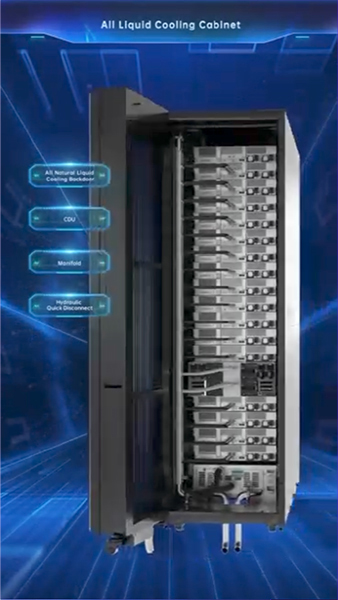

KAYTUS' high-density servers, GPU servers, and Rack and Tower servers all support liquid cooling.
Additionally, the data centers are equipped with essential liquid cooling infrastructure, including cooling distribution units, liquid cooling cabinets, liquid cooling connectors/manifolds, and outdoor liquid cooling sources.
These are complemented by high-power distribution, air conditioning, and monitoring systems.
KAYTUS ensures high-quality products through rigorous production technical specifications and strict quality control management systems.
From the initial stage of R&D and design, it has established a comprehensive set of high-standard production technical specifications, ranging from component selection to processing technology.
These technical specifications meet the various R&D, production, and testing requirements of liquid cooling servers with varying specifications.

The KAYTUS All Liquid Cooling Cabinet utilizes natural cooling sources to achieve 100% liquid cooling without the need for air conditioning. Enjoy energy savings of over 60% while keeping servers cool and running smoothly.
The product Solution consist of key components such as liquid cooling rear doors, rack-mounted CDUs (Cooling Distribution Units), quick-connect fittings, and manifold cabinets, achieving 100% liquid cooling operation. This approach eliminates the need for traditional air conditioning and drastically simplifies the system. It ensures high computing power with low energy consumption, boasting a computing power density equivalent to ten traditional cabinets in a single cabinet. The annual average PUE (Power Usage Effectiveness) can be as low as 1.1.
